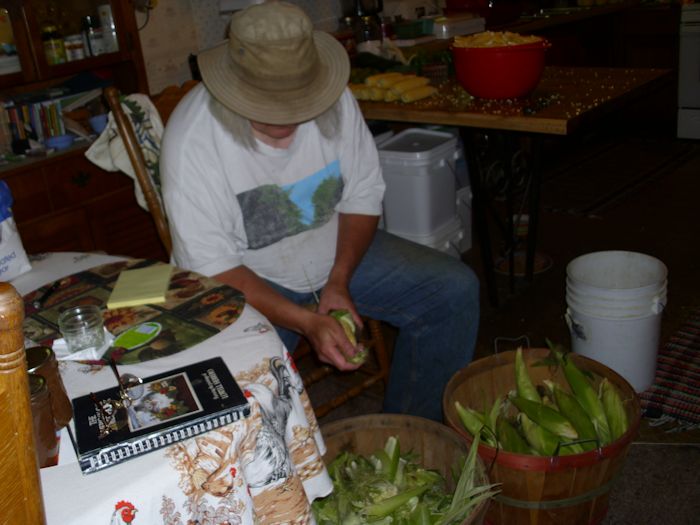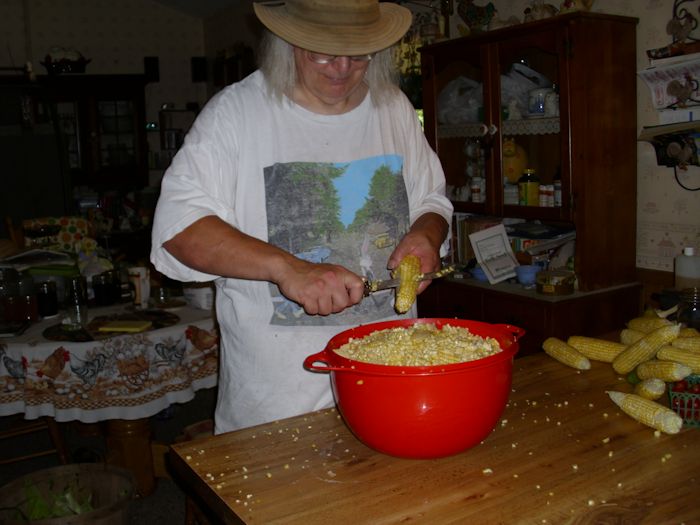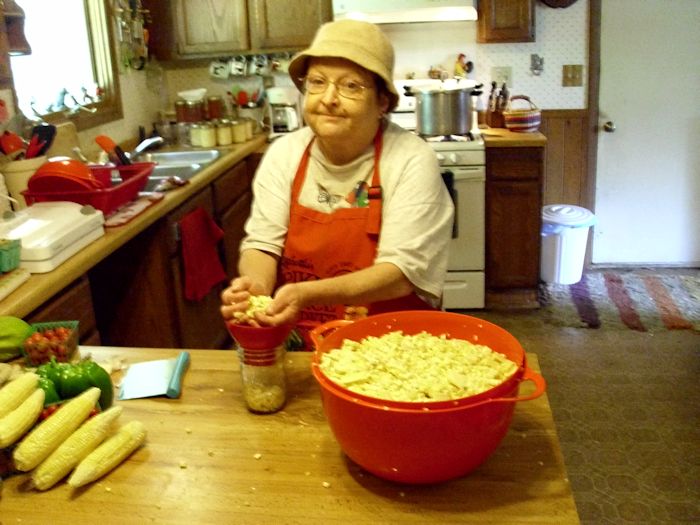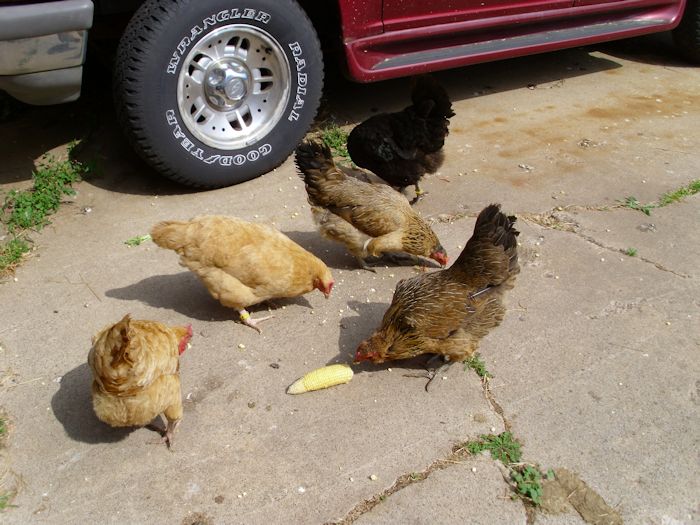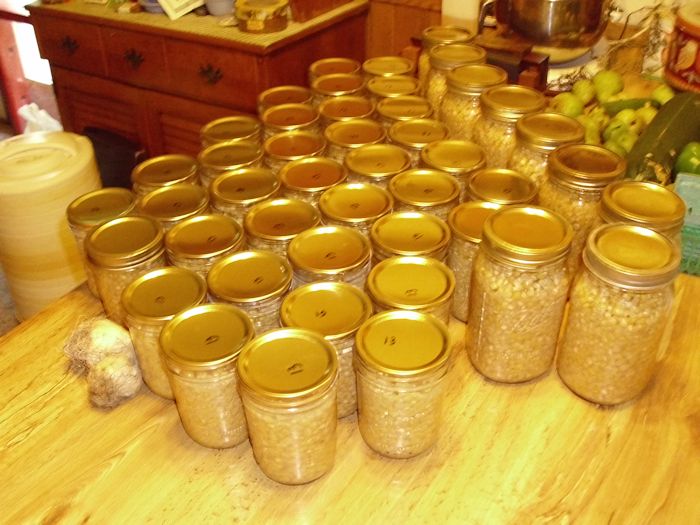Normally Harvest Festival is a well-organized event for us. I plan the time carefully and include a week out of the office to ensure I have time to harvest the last of the garden and all the fruit without problem. However, all the planning in the world won’t account for the vagaries of nature every time. Even though the Harvest Festivals in 2011 and 2012 went off precisely as planned, the Harvest Festival this year ended up being one emergency after another. It started when our fruit ripened three weeks sooner than expected—make that half the fruit. The other half of the fruit is ripening this week on schedule. The odd ripening schedule points out another potential issue with global warming, but more importantly, it demonstrates the requirement for flexibility when you’re self-sufficient. Yes, it’s possible to plan for a particular outcome, but what you get could be an entirely different story.
This year’s Harvest Festival was stretched out over three weeks while I continued to write and do all of the other things I normally do. (Fortunately, Rebecca was able to put many of the tasks she needs to perform on hold.) Of course, the dual work requirements made for some really long hours. Creating an enjoyable work environment is one of things that Rebecca and I work really hard to obtain. It’s part of our effort to make our close relationship work. So, this Harvest Festival included all of the usual music and other special environmental features we normally have. Lacking this year was much in the way of game playing, but it was a sacrifice we needed to make.
One of the bigger tasks we took on this year was processing four bushels of corn that someone gave us (all in a single day). Actually, the corn came from a few different sources, but the majority came from a single contributor. Of course, we started by husking the corn and getting all of the silk off.
The next step is to cut all of the corn off the cob. This step can be a little tricky. You need a moderately sharp knife around 8″ long. If the knife is too sharp, you’ll take off some of the cob with the kernels. A knife that is too dull will damage the corn and make a huge mess. The knife needs to be long enough so that you can remove the kernels safely—a pairing knife would be an unsafe option.
We use a raw pack approach when working with the corn. You want to be sure to pack the corn firmly, but not crush it. Rebecca always takes care of this part of the process because she has just the right touch.
Each pint or quart is topped off with boiling water at this point. We don’t add anything else to our corn. The corn needs to be processed in a pressure canner because it’s a low acid food (the processing time varies, so be sure to check your canning book for details, we rely on the Ball Blue Book and have never had a bad result).
We had four fresh meals from the four bushels of corn. There is nothing quite so nice as corn roasted on the barbecue. We also gave the chickens an ear (plus all of the cobs). They seem to have quite a good time pecking out all the kernels.
Even with these few subtractions, we ended up with 42 pints (each pint will last two meals using the recommended serving size of ½ cup) and fourteen quarts (used for soup and for company) out of the four bushels of corn. As a result, we have enough corn in the larder now for about 1½ years (a total of 140 servings).
Our Harvest Festival this year included processing pears, grapes, apples, a wide variety of vegetables, and even some of the meat chickens (125 ¾ pounds worth on a single day). The point is that we did get the work completed and we did it while still having as much fun as is possible. We’re both admittedly tired and still resting up. Still to come is the garden cleanup and the wood cutting, and then we’ll have an entire winter to rest up for next spring. Let me know about your latest self-sufficiency emergency at [email protected].

